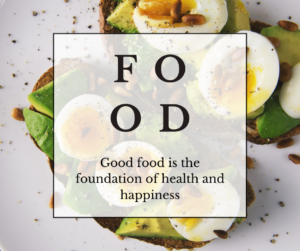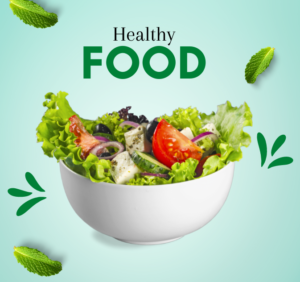We keep hearing and learning about ‘gut health’ these days. A few years ago, we were advised to consume probiotics and maybe eat live yoghurts. Unfortunately, there was little explanation as to why and what for. Now, though, we’re beginning to hear the benefits of a non-inflammatory diet – and, conversely, the negative and potentially harmful effects of inflammatory foods. As we discover more about gut health and the wider effects, it all becomes clear. Read on.

A Healthy Tummy is Key to a Healthy Life
What is Gut Health?
Gut health refers to the balance and proper functioning of the gastrointestinal tract, which includes the stomach, small intestine, and colon (large intestine). It covers the complex ecosystem of bacteria, fungi, and other micro-organisms that reside in the gut, as well as the integrity of the gut lining and the immune system within the digestive system.
A healthy gut is essential for overall well-being due to its pivotal roles in digestion, immunity, inflammation regulation, and nutrient absorption. Digestively, it aids in breaking down and absorbing nutrients, but imbalances in the gut can cause issues like bloating, wind, diarrhoea, or constipation. 70-80% of immune cells are located in the gut. These cells protect against pathogens, so disruptions in gut health can affect immunity. Poor gut health has even been linked to anxiety and depression.

Disturbances in gut health may lead to a “leaky gut,” allowing harmful substances to trigger systemic inflammation. This can contribute to diseases like inflammatory bowel disease, metabolic syndrome, obesity, and certain cancers. Additionally, gut imbalances can affect nutrient metabolism and absorption, potentially leading to deficiencies in vital vitamins and minerals. Overall, maintaining gut health is crucial for holistic health and well-being.
What is Inflammation?
Wait, what? Isn’t inflammation a result of an injury or illness? You know, like an -itis? Well, that’s not wrong as such, as inflammation is the body’s natural response, stemming from the immune system. In fact, sometimes inflammation can guard against infection or tissue damage caused by an injury. In these circumstances, inflammation is relatively short-lived – a response to, say, infection or tissue damage from injury. Common indications of inflammation are swelling, redness, heat, or pain.
However, when inflammation persists, there’s a problem. An inflammatory reaction to illness or injury is an acute, fast-acting reaction. If it continues, there’s a very real risk of chronic, long-term conditions. As with so many conditions, we can try to help ourselves to a degree. Lifestyle contributes to many inflammatory conditions – being a healthy weight reduces the risk. Other atopic inflammatory conditions may have a hereditary aspect, for example asthma, allergies and skin conditions like eczema or psoriasis.
What is an Anti-inflammatory Diet?
An anti-inflammatory diet could help alleviate or even eradicate symptoms and includes foods that are rich in healthy fats, lean proteins and plants. Plant-based foods and oily fish play a big part. This sort of healthy eating may also help to stabilise blood sugar levels and regulate insulin response, which is thought to contribute to the inflammatory process.

We’re not talking about a strict ‘diet’ here. An anti-inflammatory way of eating is more of a guide, advising how to select, prepare and eat food. Fast foods and highly processed foods are generally high in fat, salt, and sugar, so these should be avoided as far as possible – and replaced with whole foods. Try to eat mainly colourful fruit and vegetables, fish and other lean proteins, and whole grains.
Foods considered helpful for a non-inflammatory diet are:
- Turmeric: Contains curcumin, a powerful anti-inflammatory compound. Thought to have many health benefits.
- Berries: Blueberries and redcurrants have long been considered superfoods, but others, including our favourite strawberries and raspberries, are ripe with antioxidants and flavonoids.
- Oily Fish: Salmon, mackerel, cod, sardines, and tuna are rich in omega-3 fatty acids, which support heart health and have been found to reduce inflammation in the body.
- Leafy Green Vegetables: Kale, spinach, spring greens, savoy cabbage, and pak choi are full of vitamins, minerals, and phytonutrients (super-potent antioxidants) known to reduce inflammation. They’re also crucial to overall health.
- Cruciferous Vegetables: Broccoli and other cruciferous vegetables are full of sulforaphane, a compound that inhibits inflammatory enzymes. They also boast antioxidants like vitamin C, flavonoids, and beta-carotene.
- Ginger: Full of antioxidant compounds, ginger is thought to boost the immune system and fight inflammation. Its anti-inflammatory properties make it popular for easing sore muscles after exercise.
- Nuts and Seeds: Help to reduce inflammation and lower the risk of heart disease and diabetes. Almonds, walnuts, flaxseeds, and chia seeds are full of antioxidants and polyunsaturated fats, including omega-6s and omega-3s, as well as monounsaturated fats, protein, fibre, vitamin B6, vitamin E, minerals, and phytochemicals.
- Olive Oil: contains oleocanthal, which is similar to ibuprofen and effectively fights inflammation.
- Tomatoes: Rich in nutrients such as lycopene, beta carotene, and vitamin C, all of which are antioxidants and anti-inflammatory. Lycopene, particularly, is a powerful antioxidant that supports heart health and is also thought to reduce the risk of some cancers.
- Green Tea: Studies show green tea extract can reduce inflammation markers.
- Avocado: Rich in mono-unsaturated fats and antioxidants, avocado is a unique fruit as it contains vitamin E, which fights inflammation. Avocado also promotes HDL – or good -cholesterol while lowering harmful LDL cholesterol. Avocados are also full of vitamins, minerals, and phytochemicals that boost immunity and reduce inflammation.
- Dark Chocolate: Flavonoids boast anti-inflammatory properties and support heart health. The high cocoa content also has anti-inflammatory effects.
- Cherries: Packed with polyphenols and vitamin C, cherries have antioxidant and anti-inflammatory benefits.
- Pineapple: The enzyme in pineapple, Bromelain, boasts anti-inflammatory and digestive benefits. Pineapple is also rich in antioxidant vitamin C.
- Garlic: Has anti-inflammatory properties, supporting immune function and heart health.
- Sweet potatoes: Rich in beta-carotene and vitamin C, which offer a multitude of health benefits.
- Beetroot: Full of betalains, which fight inflammation and support the liver. Beetroot juice seems to lower inflammation markers.
- Citrus Fruits: Oranges and other citrus fruits are rich in vitamin C and flavonoids that fight inflammation and boost immunity. Oranges and grapefruits contain a flavonoid, narirutin, which is a polyphenol with anti-inflammatory and antioxidant powers.
- Spinach: A superfood with numerous health benefits and packed with vitamins, minerals including iron, and antioxidants. It’s exceptionally low in calories and may reduce the risk of macular degeneration.
- Celery: Contains around 25 inflammation-fighting compounds. According to research, celery extract works like aspirin and ibuprofen against inflammation and pain.

What Does an Anti-inflammatory Diet Do?
Inflammation is thought to contribute to several chronic and auto-immune diseases, including lupus and rheumatoid arthritis, cancer, heart disease, diabetes, bowel diseases, depression, and Alzheimer’s. An anti-inflammatory diet means reducing inflammatory foods and eating more non-inflammatory foods.
As a healthy diet, a non-inflammatory diet is useful in achieving and maintaining a healthy weight. In itself, obesity causes inflammation, which can lead to metabolic syndrome and eventually type 2 diabetes.
Although an anti-inflammatory diet is beneficial for everyone, diet alone is unlikely to be the answer for everything and everybody. Stress, a sedentary lifestyle, smoking, drinking too much and lack of sleep also promote inflammation so should all be addressed. Being outdoors and getting natural daylight is also helpful.
An Anti-inflammatory Helping Hand
So, ok. Eat colourful veg, lean protein, oily fish, nuts and seeds, broccoli, and so on. Cut down on alcohol, lose the fags, and get out and about – ideally with 10,000 steps or more. However, we know all too well that it’s not always that easy. Life gets in the way. We’ve all got so much to do that eating a rainbow and preparing fresh, healthy meals is sometimes tricky. Work. Family. Life in general. Fortunately, we have access to the brilliant Zinzino range:
- Balance Oil – Omega 3, Vitamin D and Polyphenols (options suitable for a vegan diet).
- Essent – to support healthy hair, skin and nails maintaining normal circulation, muscle and eye function.
- Zinobiotic – dietary fibres to restore a healthy gut.
- Xtend – immune boosting.
- Viva – sleep, relax and improve all-round well-being.
- Lean Shake – a healthy and tasty meal replacement for weight loss.
Book a consultation today. Let’s get you started on your anti-inflammatory gut health journey – and all the benefits it brings.


Recent Comments